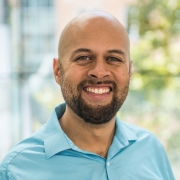(Carlos R. Ponce is an Assistant Professor in the Department of Neuroscience at Washington University School of Medicine. The opinions expressed are his own.)
By Carlos R. Ponce
"While preparing for a recent move to St. Louis, Missouri, the first item I packed was my dearest possession, an old faded picture of a cow grazing in a sloping field in Mexico. This was the only cow my grandparents owned and they sold it to pay a smuggler to bring me into the United States, and join my mother, in 1990. I was 12.
I moved to St. Louis to join Washington University as an assistant professor, after training as an M.D.-Ph.D. neuroscientist at Harvard. Last week, I listened to a recording of a young boy crying, separated from his family per government orders at the U.S.-Mexico border, and I wondered what will happen to him. Despite an executive order ending this practice, over 2,000 migrant children are still in custody.
I am now a citizen and I love this country deeply, so I want to believe that the children will somehow be fine. The neuroscientist in me is skeptical. Let me tell you why.
I study the brain by analyzing it like a computational device, asking how individual neurons transfer information to each other and realize visual recognition. When it comes to recognizing faces, all normal primate brains have the same organization, grouping neurons that signal electrical impulses when presented with pictures of faces. There is a debate about whether this grouping of "face-selective" cells is genetic or learned..."
Read the full story on the trust.org website using the link below.

